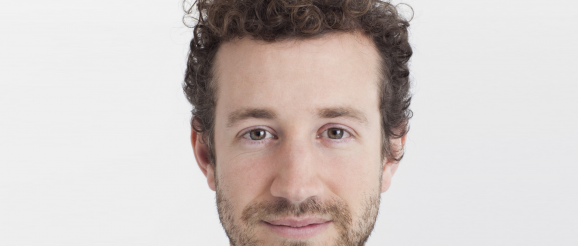5 Q’s for Laurent Martinot, CEO and Co-Founder of Sunrise – Center for Data Innovation

The Center for Data Innovation spoke with Laurent Martinot, CEO and co-founder of Sunrise, a Belgium company providing hardware and software monitoring sleep. Martinot discussed how sleep data help physicians better treat sleep disorders in patients.
The interview has been edited.
Christophe Carugati: What is your company’s goal, and how does data help it achieve it?
Laurent Martinot: At Sunrise, we help patients suffering from poor sleep and chronic fatigue. We want to help them regain the energy lost.
Although they are probably one of the main causes of fatigue globally, sleep-disordered breathings—a potentially serious sleep disorder in which breathing repeatedly stops and starts—like sleep apnea, are not always well understood. We aim to fill this gap by informing and providing easy access to the diagnosis and treatment of these diseases.
To do so, we have developed a three-gram sensor to diagnose sleep disorders from home, with gold standard quality. It is the only certified medical device with fully automated analysis demonstrating agreement above ninety percent with in-lab sleep studies.
To make this possible, we reinvented how we analyze sleep. We have used a novel bio-signal—the mandibular movements defined as the lower jaw movements induced by muscle contractions at night—and collected data on hundreds of patients to fully capture the slightest variations of this signal and their meaning for our sleep health.
Carugati: How does Sunrise’s technology differ from others on the market?
Martinot: The company discovered a better way of measuring sleep. Indeed, Mandibular movements have the prime advantage of being a direct proxy of how the brain regulates sleep and respiration at night.
We can observe the adjustments performed by the brain to preserve quality sleep through the movements generated by upper airway muscle contractions. It allows for an online understanding of sleep events and the brain’s corrective measures to address them.
The activity we observe is the fruit of primitive functioning. The brain stem directly pilots it, and it is thus non-influenced by complex cortex functions.
Carugati: How can patients use Sunrise to sleep better at night?
Martinot: We design the Sunrise test to be very easy to use and comfortable for patients. The installation takes only a few minutes: the patients pair the sensor with the app. The sensor then automatically activates when placed on the chin. It is very light, so patients can almost forget it is there. The following day, the night is analyzed on a secured platform. A report is then made available to the patient within a few minutes after the test.
Patients can send the report to their physicians through the app in case of an issue. Physicians will then connect on the secured online platform and access a sleep report similar to what they receive after a patient’s night at the hospital sleep lab.
Carugati: How do physicians benefit from Sunrise’s product?
Martinot: Sunrise is a facilitator for physicians. Indeed, it gives them easy access to validated clinical data to diagnose rapidly and treat their patients within days. Hence, Sunrise helps to reduce the current burden with sleep testing at hospitals that can imply long waiting lines due to only a few beds available and significant logistics.
Moreover, Sunrise will be an important part of helping physicians with the increase in sleep testing in the future due to the seriousness and prevalence of sleep disorders.
Last but not least, we can repeat the test on several nights to fully capture the internight variability in the patient’s usual sleep environment.
Carugati: How will Sunrise use its recent funding by the European Commission to further innovate in the field?
Martinot: We will continue innovating and bringing to market easier to use, lighter, and more comfortable devices for sleep apnea patients worldwide.
For instance, studies show that sleep apnea concerns nearly one billion people globally. Eighty percent of them are not diagnosed today. They are often simply unaware of this disease that drains their nights and interferes with their day-to-day, certainly at work but also notably with their family and friends.
We will continue to facilitate patients’ access to care to ensure diagnosis and treatments in just a few days rather than months, as is often the case today.
